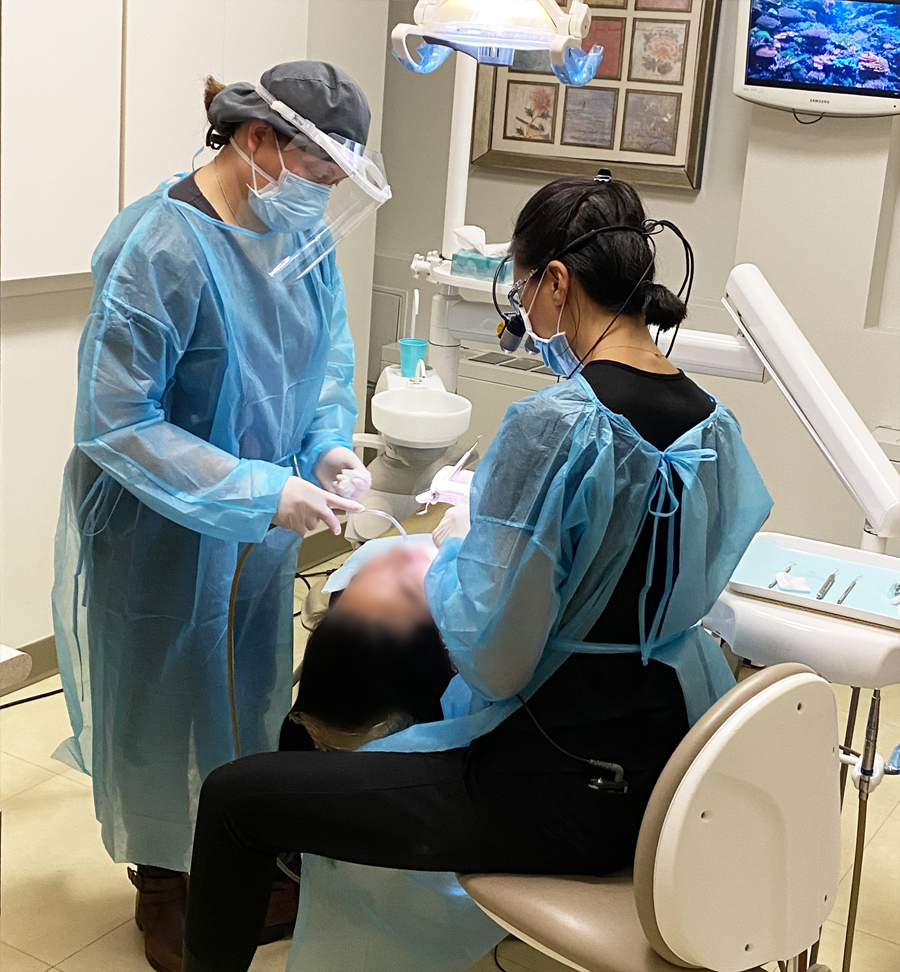Discover Frequent Oral Issues Your Dental Expert Can Fix
Recognizing regular dental problems is important for preserving optimal oral wellness. Issues such as cavities, periodontal illness, tooth sensitivity, foul-smelling breath, and tooth decay are usual yet usually neglected up until they end up being severe. Dental practitioners possess the competence to identify and treat these problems, thereby stopping more complications. Normal dental brows through and customized care strategies can address these problems successfully, ensuring a healthier and brighter smile. What specific therapies do dental practitioners employ to deal with these concerns, and how can early intervention make a difference? The solution to these concerns offer valuable insights right into guarding your oral wellness.
Cavities
Tooth cavities, also called cavities, are a common dental health concern caused by the demineralization of tooth enamel as a result of acid manufacturing from microbial plaque. This process begins when microorganisms in the mouth metabolize sugars and starches from food, generating acids that wear down the enamel. Otherwise attended to without delay, this erosion can pass through deeper into the tooth, influencing the dentin and ultimately the pulp, possibly resulting in severe pain and infection.
The early stages of dental caries development typically existing as white places on the tooth surface, showing initial demineralization. As the process proceeds, these spots can develop into black or brown sores, symbolizing much more comprehensive degeneration. Normal dental examinations are essential for early detection, as cavities in their nascent stages can be treated with remineralization techniques, such as fluoride treatments.
When a tooth cavity has developed, restorative treatment is required. Dental practitioners usually remove the decayed part of the tooth and load the dental caries with products such as composite material, amalgam, or ceramic. In more extreme instances, a crown or origin canal therapy might be called for. Precautionary steps, consisting of great dental health practices and nutritional alterations, play a crucial duty in alleviating the risk of dental caries.
Periodontal Disease
While dental caries represent a considerable concern for oral wellness, an additional crucial problem that demands attention is gum tissue disease. Understood as gum illness, gum condition is an inflammatory problem impacting the tissues bordering and sustaining the teeth. It is largely brought on by the accumulation of plaque-- a sticky movie of germs that develops on teeth.
Periodontal disease proceeds through stages, starting with gingivitis, defined by redness, swelling, and hemorrhaging gums (eugene dentist). If left without treatment, gingivitis can escalate to periodontitis, where the internal layer of the gum and bone retreat from the teeth, forming pockets that come to be contaminated. Gradually, the contaminants created by the bacteria damage down the bone and connective tissue that hold teeth in position, possibly bring about tooth loss
Early discovery and treatment are crucial. Specialist oral cleanings and enhanced oral health methods, such as brushing two times everyday and flossing, can handle gingivitis. For even more innovative phases, therapies might include scaling and root planing, anti-biotics, or also surgical treatments.
Normal dental exams play a critical role in avoiding and managing gum condition. Dental practitioners can recognize early indicators and advise ideal interventions, making sure the maintenance of healthy and balanced periodontals and overall dental health and wellness.
Tooth Sensitivity
Tooth level of sensitivity impacts countless individuals worldwide, offering an usual yet usually traumatic dental issue. This condition develops when the enamel, the outer safety layer of the teeth, is jeopardized, exposing the underlying dentin. The dentin consists of tiny tubules that lead straight to the oral pulp, where nerves stay. When subjected to stimulations such as warm, chilly, sweet, or acidic compounds, these nerves are triggered, triggering sharp pain or pain.
Numerous variables add to enamel erosion and subsequent tooth sensitivity, consisting of hostile cleaning, acidic foods and beverages, periodontal economic crisis, and bruxism (teeth grinding) In addition, dental treatments such as teeth bleaching can temporarily heighten level of sensitivity.
Foul-smelling Breath
One more widespread oral concern that influences people' every day lives misbehaves breath, medically labelled bad breath. This problem can be particularly traumatic, influencing individual interactions and self-worth. Bad breath typically stems from inadequate oral hygiene, which allows food particles to remain in the mouth, cultivating bacterial growth. These microorganisms produce sulfur compounds, causing unpleasant smells.

Dental professionals play a vital function in treating and identifying bad breath. They can identify the source via a thorough exam and offer customized suggestions and therapy plans. Recommendations might involve enhancing oral health practices, such as regular cleaning and flossing, making use of antibacterial mouth washes, staying moisturized, and their explanation addressing any type of oral problems. Sometimes, a recommendation to a specialist may be needed to deal with underlying health and wellness troubles adding to halitosis. Effective management of bad breath not just improves dental health and wellness but additionally significantly improves quality of life.
Dental Caries

Protecting against dental caries involves a mix of excellent oral health methods and normal dental exams. Brushing teeth at the very least two times daily with fluoride tooth paste, flossing to get rid of plaque between teeth, and restricting the intake of sugary foods and beverages are necessary preventative steps. Fluoride treatments, dental sealants, and professional cleanings great post to read provided by a dental practitioner can additionally play a considerable duty in strengthening enamel and stopping decay.
Dentists can eliminate corroded tissue and recover the tooth with fillings made from materials such as composite resin, amalgam, or porcelain. By addressing tooth degeneration immediately, dental experts aid protect oral structure and function, ensuring long-lasting dental health and wellness.
Verdict
Dealing with common oral worries such as tooth cavities, periodontal condition, tooth level of sensitivity, bad breath, and dental cavity is essential for maintaining optimum dental health and general well-being. Dental practitioners possess the expertise to detect and deal with these concerns efficiently, ensuring tailored look after each client. Normal preventive measures and dental exams are important in determining and handling these issues early, promoting a healthier and a lot more confident smile over a lifetime.

Tooth decay, also known as dental decays, takes place when the enamel, the outermost layer of the tooth, is worn down by acids produced by germs in the mouth. Brushing teeth at the very least twice daily with fluoride toothpaste, flossing to eliminate plaque in between teeth, and limiting the intake of sugary foods and drinks are essential preventative measures.Dealing with usual oral problems such as cavities, gum illness, tooth level of sensitivity, negative breath, and tooth decay is critical for maintaining optimum dental wellness and total well-being.